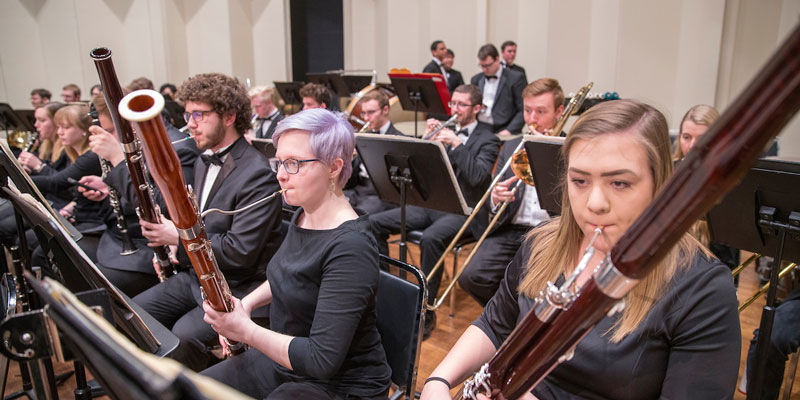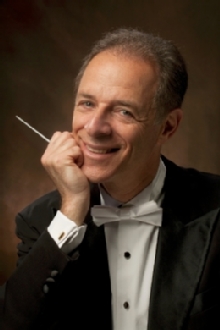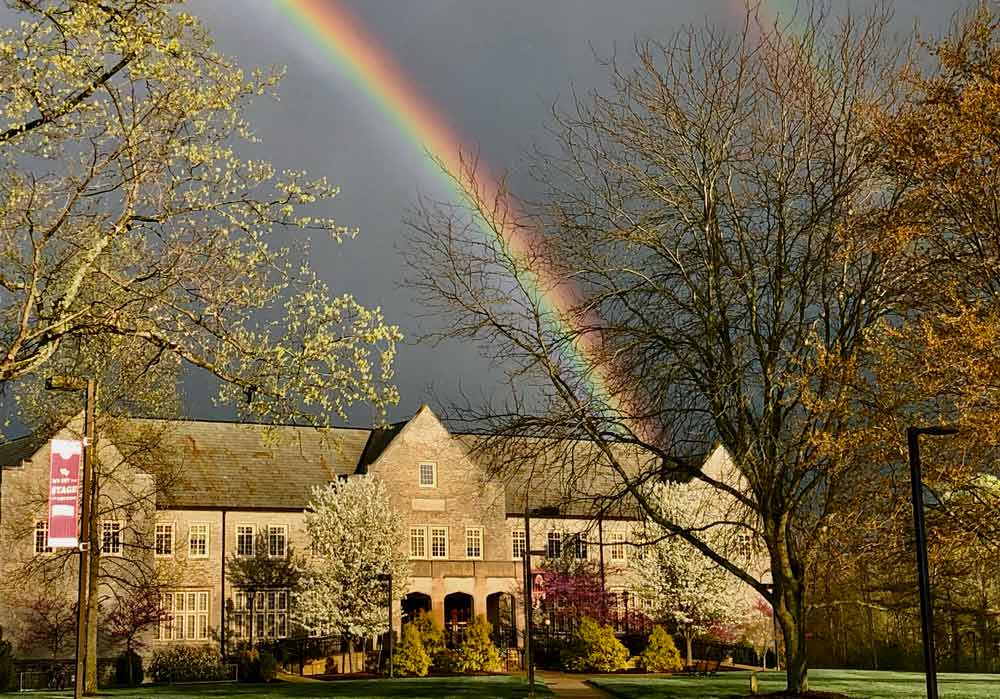
Symphony Orchestra
Instrumental Ensemble Audition Information
String Auditions
Your audition is not only to determine your seating in the orchestra, but also to provide you with a unique learning experience, where you will grow as an artist. You should share your audition with both me and our string faculty, so that we can give you feedback and ways to improve.
Once you learn the audition excerpts, you are asked to film yourself (you can use your phone, iPad, etc.) and send the video link by email to Ricardo Averbach and to your respective studio instructor.
Important Information for All String Players
After our incredible achievement, winning The American Prize, we now head into a truly landmark semester. In January, we will represent Miami University at the OMEA Conference in Columbus—a major honor for our orchestra and a testament to your dedication and artistry.
Following OMEA, we will present two major concerts this spring:
- Concert I – Concerto Winners + Tchaikovsky’s Romeo and Juliet – Friday, March 13 in Hall Auditorium
- This program will feature the talented winners of our concerto competition and Tchaikovsky’s masterful Romeo and Juliet. It is one of the great orchestral works—rich, dramatic, and a privilege to perform.
- Concert II – Season Finale: Beethoven’s Symphony No. 5 – Thursday, May 7 in Hall Auditorium
- We will close the academic year with what is possibly the most iconic symphony ever written. Beethoven’s Fifth is a cornerstone of our repertoire—an essential work that every orchestral musician must know deeply.
Both compositions are transformational, and preparing them will make every musician grow tremendously.
Auditions Will Be Rigorous
If you want to be part of the orchestra, you must come prepared. You have one and a half months to learn the excerpts, and to support your preparation, I am including tutorials and professional recordings.
Please devote consistent time over winter break to practicing these excerpts. This will allow you to arrive ready in January—especially once the academic workload intensifies during the semester.
Pro Tip: Practice slowly with recordings. It will help with ensemble sense, intonation, rhythmic precision, and style.
Submitting Your Video Audition
Deadline: Monday, Jan. 19, 2026
Record using your phone, tablet, or any device.
Email the link to BOTH Ricardo Averbach and your studio teacher:
- Ricardo Averbach (Conductor): averbach@MiamiOH.edu
- Harvey Thurmer (Violin): thurmehp@MiamiOH.edu
- Marion Peraza (Viola): perazam@MiamiOH.edu
- Franklin Sandoval (Cello): sandovfg@MiamiOH.edu
- Steve Ullery (Double Bass): sfullery@fuse.net
Video Format Options
- Option 1: Upload to Google Drive
- Be sure that sharing permissions allow us to view it.
- Option 2: Upload to YouTube as an unlisted video
- Email us the link.
Take the time to prepare these excerpts with care, depth, and curiosity. When you work slowly, intentionally, and with recordings, you will be amazed at the musical growth you experience — long before the first rehearsal begins.
About the MUSO
The First Years
The Miami University Orchestra dates back as far as 1890 to the Miami Stringed Orchestra, which consisted entirely of banjos, mandolin, guitars, and piccolo-banjos.
It was not until 1903, however, that the Miami University Symphony Orchestra was officially founded. At its inception, this twelve-member ensemble, under the direction of Dr. S.S. Meyers, served to play each morning in the university chapel service and at most university functions. An article in the December 1904 edition of The Miami Student reads in part, "...since its organization a year ago, [the Miami orchestra] has perhaps contributed more to the pleasure of the college life of Miami than any other organization..." An editorial in the January 1905 Miami Student later boasts, "Both students and faculties can feel justly proud of our Orchestra. It is a living exemplification of the precept, that whatever is worth doing at all, is worth doing well...it would not be an exaggeration to say that it is the flower of the music department." Soon after 1905, however, the orchestra was forced to disband as the number of instrumentalists at the university dwindled. Ten years later, in 1915, plans to revive the orchestra were undertaken.
The Miami Student announced on Nov. 25, 1915, "The development of the university orchestra is well under way, for the most difficult part of the process — that of securing the talent, was easily accomplished." The premiere of this new ensemble took place on Dec. 15, 1916, in the First Concert of the Miami University Orchestra with a 44-member ensemble held in Hall Auditorium under the direction of noted composer and conductor Joseph W. Clokey.
Growing Up

Over the next several decades, the orchestra's leadership included conductors Donald Kissane, Roy A. Williams, Dr. Theodore Kratt, Gordon Sutherland, Joseph Bein, and Adon Foster. In 1957, the university secured conductor and composer Otto Frohlich, a native of Czechoslovakia, to direct the orchestra and the newly organized student opera program. Frohlich's twelve-year tenure with the orchestra contributed a great deal to the success of both the ensemble and the music department.
Into the Present
After Frohlich's retirement, the ensemble was directed by George Seltzer and, later, Paul Nadler. Carmon DeLeone, who served as director of the orchestra from 1980-1992, was followed by interim conductors Jacob Chi, and Jose Luis-Novo, who, in 1998, founded the Oxford Chamber Orchestra, a collaboration between music faculty and select students. The current conductor, Ricardo Averbach, a native of Brazil, was appointed as Director of Orchestral Studies in the fall of 2002.
About the Director
 Ricardo Averbach is Director of Orchestral Studies at Miami University and Past President of the College Orchestra Directors Association. Originally from Brazil, after graduating in engineering at the Universidade de São Paulo, he received his degree in orchestra, choral and opera conducting at the National Academy of Music of Bulgaria and his doctoral degree at the University of Michigan. Averbach conducts regularly in South and North America, Europe and Asia, having performed as guest conductor in over 15 countries. His discography includes several world premiere recordings in prestigious labels, which already sold over half a million copies worldwide. As a scholar, he published a number of articles in peer reviewed publications and the critical edition of Villa-Lobos’s The Insects Martyrdom with the Theodore Presser Company. His book Villa-Lobos and Modernism: The Apotheosis of Cannibal Music has been released by Lexington Books in August 2022.
Ricardo Averbach is Director of Orchestral Studies at Miami University and Past President of the College Orchestra Directors Association. Originally from Brazil, after graduating in engineering at the Universidade de São Paulo, he received his degree in orchestra, choral and opera conducting at the National Academy of Music of Bulgaria and his doctoral degree at the University of Michigan. Averbach conducts regularly in South and North America, Europe and Asia, having performed as guest conductor in over 15 countries. His discography includes several world premiere recordings in prestigious labels, which already sold over half a million copies worldwide. As a scholar, he published a number of articles in peer reviewed publications and the critical edition of Villa-Lobos’s The Insects Martyrdom with the Theodore Presser Company. His book Villa-Lobos and Modernism: The Apotheosis of Cannibal Music has been released by Lexington Books in August 2022.
Department of Music
The Miami University Department of Music encourages its students to develop their relationship to the discipline of music as they explore the world through the lens of a superb liberal arts education.
